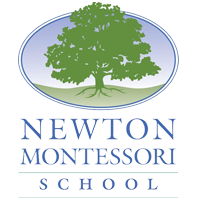The following piece was prepared for Newton Montessori School:

Chief Executive Officer: NMS engages helpful habits in each activity
By Matt Robinson
If you have been around the world of education in any capacity, you may have heard he term “executive function.” Simply put, it involves the skills that allow us to structure and control our internal and external worlds; skills like planning, focusing, remembering, and assessing.
And while such skills and habits may seem to be very mature, the children at NMS engage and demonstrate them on a daily basis, starting even before you let go of their hands or kiss them goodbye.
As soon you let go of your child’s hand, they become independent workers who engage other people and their world with purpose and direction. From changing into their “inside shoes” and putting personal belongings neatly in their cubbies or lockers to choosing their work and potential work partners, NMS students engage their environment with intent and interest and their actions all involve a wide range of executive and other functions.
In addition to using gross motor skills to carry the mat while navigating the room (which also takes planning), the students must decide where to place the mat so as not to disrupt others and then who to invite (using language) to work with or near them. They must then plan the next part of their day and act upon this plan by deciding which work to engage, taking it out, understanding its inherent rules so they can complete it to the best of their ability, cleaning it up and replacing it so their friends can enjoy it later on. Even though most Montessori works are self-correcting and designed so that the desired result is self-evident, the students must plan their approaches independently and then deal with any apparent errors with appropriate cognitive and emotional responses in order to achieve success.
Similar skills and practices come into play during snack and meal times. In addition to deciding what to eat, students must also arrange their eating area and consider whether or not they will engage others at their table before or after eating so as not to run out of time before cleaning up. Speaking of cleaning up, the set-up, removal, and cleaning of snack and meal table settings also involve multi-step processes that are self-correcting and intuitively educative. If someone puts a plate on the table before their placemat, the child will know – without teasing or reprimanding of any kind – that they need to rethink now and plan more effectively in the future. Similarly, when it is clean-up time, mopping the floor before crumbs have been cleared from the table may mean that a second mopping is required. As cleaning up also involves care for the environment, it is a quintessential Montessori activity!
One of the most popular and productive activities that calls upon all of these skills and functions is one that NMS students engage while in Primary. Flower arranging not only involves planning, assessment, and motor skills, it also results in a project that beautifies the environment and gives the children a sense of accomplishment. Not only must the children select their flowers and the receptacle into which they will be placed, they must go further by planning where each flower will go, what colors will be combined, and when they will consider the work completed so that it is pleasing to them and hopefully to others as well. As with all works, the clean up process also involves multiple mental, physical, and potentially interpersonal steps, each of which involves various executive skills. In fact, according to Montessori curricula, the act of arranging flowers in a vase involves no less than 22 separate steps, each of which not only prepares the flowers for display but also prepares the budding florist to take on more arduous tasks in the future. What may be most important to the students, however, I that when they are done, they have created a thing of beauty of which they can take ownership!
In Elementary, students must not only think about each individual activity in which they engage, they must also plan ahead to make sure that they will be able to deal with all of the many engaging tasks on their work plans. Even if your child is a budding biologist, they must also develop the language and counting skills they will need to distinguish and describe their discoveries. As such, vital skills related to time management and prioritizing come into play and play must sometimes be shelved until work is completed. Later Elementary students must also organize homework folders, Cornell note binders, and other learning aides, building upon previous skills to develop and enhance future understandings. At the group level, Elementary students have more opportunities to engage their classmates and environment as well. From drama to reading buddies, students are encouraged to take other perspectives to develop greater understanding and empathy.
Though the prefrontal cortex may not be fully developed until a child reaches adolescence, preparing the mind begins as soon as the mind is revealed. From deciding what to do now to planning what to do later, all of these skills help your little executives function so they can more effectively care for themselves, their friends, and their environment
It is the Newton Montessori way!